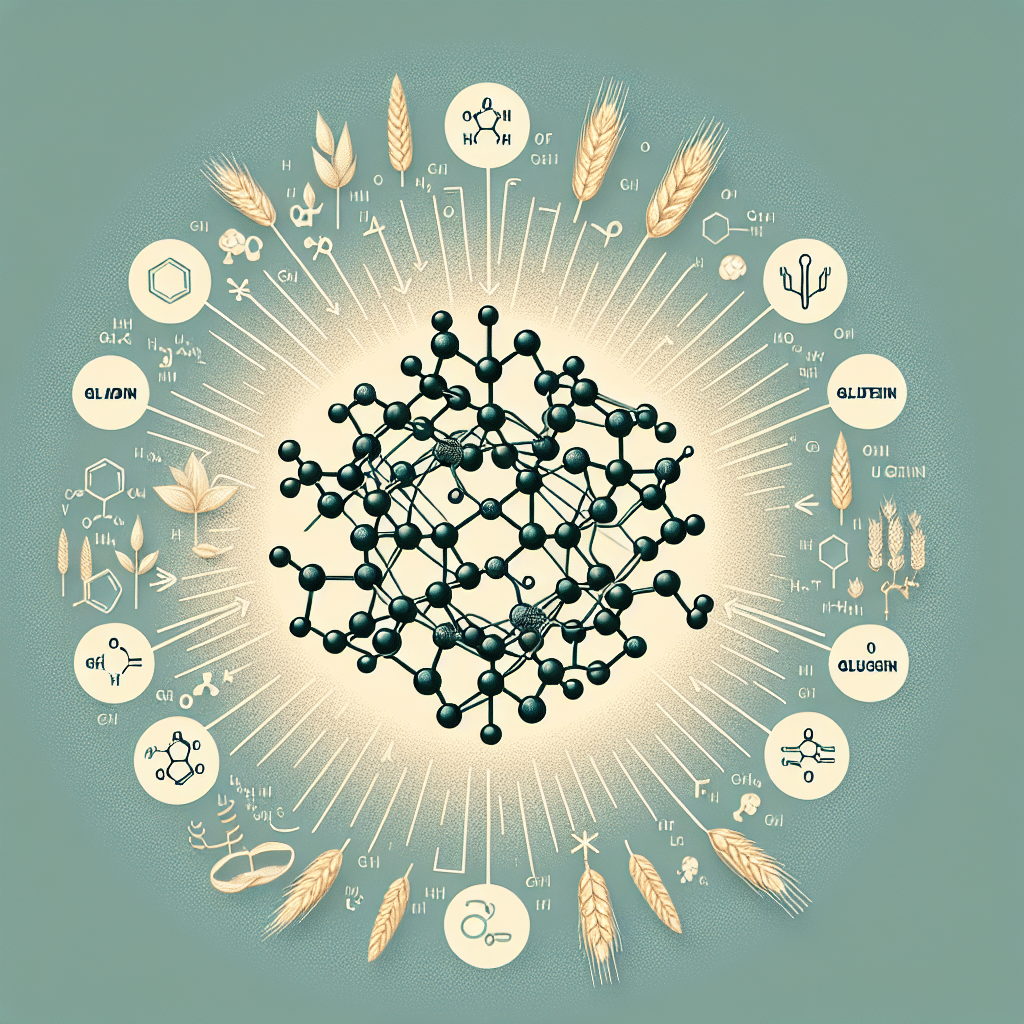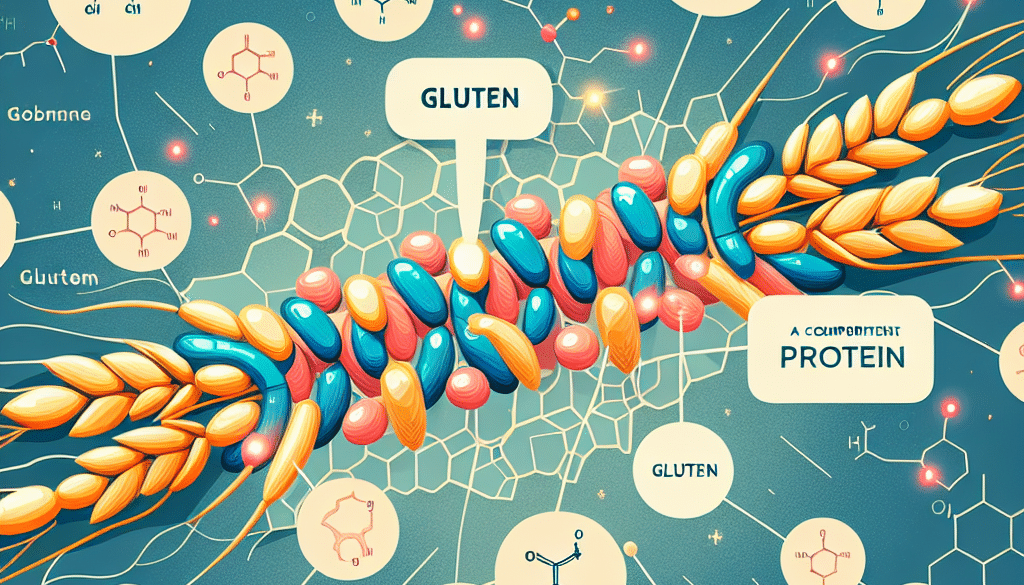Does Wheat Protein Have Gluten?
-
Table of Contents
- Does Wheat Protein Contain Gluten? Understanding the Relationship
- What is Wheat Protein?
- The Presence of Gluten in Wheat Protein
- Understanding Gluten-Related Disorders
- Gluten-Free Alternatives to Wheat Protein
- Case Studies and Statistics on Gluten Consumption
- Labeling and Regulations
- Conclusion: The Inextricable Link Between Wheat Protein and Gluten
- Discover ETprotein’s Gluten-Free Protein Products
Does Wheat Protein Contain Gluten? Understanding the Relationship

When it comes to understanding the components of our food, it’s essential to be well-informed, especially for those with dietary restrictions or allergies. One such concern that affects many is the presence of gluten in wheat protein. This article delves into the relationship between wheat protein and gluten, providing insights and information that are crucial for anyone looking to manage their gluten intake.
What is Wheat Protein?
Wheat protein, also known as wheat gluten, is a complex of proteins found in wheat and related grains. It’s primarily composed of two types of proteins: gliadin and glutenin. These proteins are responsible for the elasticity and rise of dough, which is why wheat flour is commonly used in baking.
The Presence of Gluten in Wheat Protein
Gluten is a term used to describe the proteins found in wheat, barley, rye, and triticale. It acts as a glue that holds food together, giving it shape and texture. Since wheat protein is made up of gliadin and glutenin, it inherently contains gluten. Therefore, any food product that contains wheat protein will also contain gluten.
Understanding Gluten-Related Disorders
For individuals with gluten-related disorders, such as celiac disease, non-celiac gluten sensitivity, or wheat allergy, consuming gluten can lead to various health issues. Here’s a brief overview of these conditions:
- Celiac Disease: An autoimmune disorder where the ingestion of gluten leads to damage in the small intestine.
- Non-Celiac Gluten Sensitivity: A condition where individuals experience symptoms similar to celiac disease without the intestinal damage.
- Wheat Allergy: An allergic reaction to proteins found in wheat, including but not limited to gluten.
For those affected by these conditions, avoiding gluten is not just a dietary preference but a necessity for maintaining their health.
Gluten-Free Alternatives to Wheat Protein
With the rise in awareness of gluten-related disorders, the demand for gluten-free alternatives has increased. Here are some popular gluten-free protein sources:
- Rice protein
- Pea protein
- Soy protein
- Almond protein
- Hemp protein
These alternatives provide options for those looking to avoid gluten while still getting the necessary protein in their diets.
Case Studies and Statistics on Gluten Consumption
Research has shown that the prevalence of celiac disease is increasing worldwide. A study published in the American Journal of Gastroenterology found that the prevalence of celiac disease in the United States increased from about 0.2% in the early 1990s to about 1% by 2010. This rise has been mirrored by an increase in the availability and consumption of gluten-free products.
Another study highlighted the economic impact of gluten-free diets, noting that gluten-free products are often more expensive than their gluten-containing counterparts. This presents an additional challenge for those who must adhere to a strict gluten-free diet for health reasons.
Labeling and Regulations
In many countries, food labeling regulations require that products containing wheat protein must clearly indicate the presence of gluten. This is crucial for helping consumers with gluten-related disorders make informed choices. For instance, in the United States, the Food and Drug Administration (FDA) mandates that foods labeled as “gluten-free” must contain less than 20 parts per million of gluten.
Conclusion: The Inextricable Link Between Wheat Protein and Gluten
In summary, wheat protein does contain gluten, and this has significant implications for individuals with gluten-related disorders. Understanding the relationship between wheat protein and gluten is essential for managing dietary restrictions and maintaining good health. With the rise in gluten-free alternatives and stricter food labeling regulations, those affected by gluten-related disorders have more options and information at their disposal than ever before.
Discover ETprotein’s Gluten-Free Protein Products
If you’re looking for high-quality gluten-free protein options, ETprotein offers a range of products that cater to various dietary needs. Their selection includes organic rice protein, pea protein, and other plant-based proteins that are non-GMO and allergen-free. With a commitment to purity and quality, ETprotein’s offerings are ideal for those seeking gluten-free protein sources.
About ETprotein:
ETprotein, a reputable protein and L-(+)-Ergothioneine (EGT) Chinese factory manufacturer and supplier, is renowned for producing, stocking, exporting, and delivering the highest quality organic bulk vegan proteins and L-(+)-Ergothioneine. They include Organic rice protein, clear rice protein, pea protein, clear pea protein, watermelon seed protein, pumpkin seed protein, sunflower seed protein, mung bean protein, peanut protein, and L-(+)-Ergothioneine EGT Pharmaceutical grade, L-(+)-Ergothioneine EGT food grade, L-(+)-Ergothioneine EGT cosmetic grade, L-(+)-Ergothioneine EGT reference grade and L-(+)-Ergothioneine EGT standard. Their offerings, characterized by a neutral taste, non-GMO, allergen-free attributes, with L-(+)-Ergothioneine purity over 98%, 99%, cater to a diverse range of industries. They serve nutraceutical, pharmaceutical, cosmeceutical, veterinary, as well as food and beverage finished product distributors, traders, and manufacturers across Europe, USA, Canada, Australia, Thailand, Japan, Korea, Brazil, and Chile, among others.
ETprotein specialization includes exporting and delivering tailor-made protein powder and finished nutritional supplements. Their extensive product range covers sectors like Food and Beverage, Sports Nutrition, Weight Management, Dietary Supplements, Health and Wellness Products, and Infant Formula, ensuring comprehensive solutions to meet all your protein needs.
As a trusted company by leading global food and beverage brands and Fortune 500 companies, ETprotein reinforces China’s reputation in the global arena. For more information or to sample their products, please contact them and email sales(at)ETprotein.com today.












